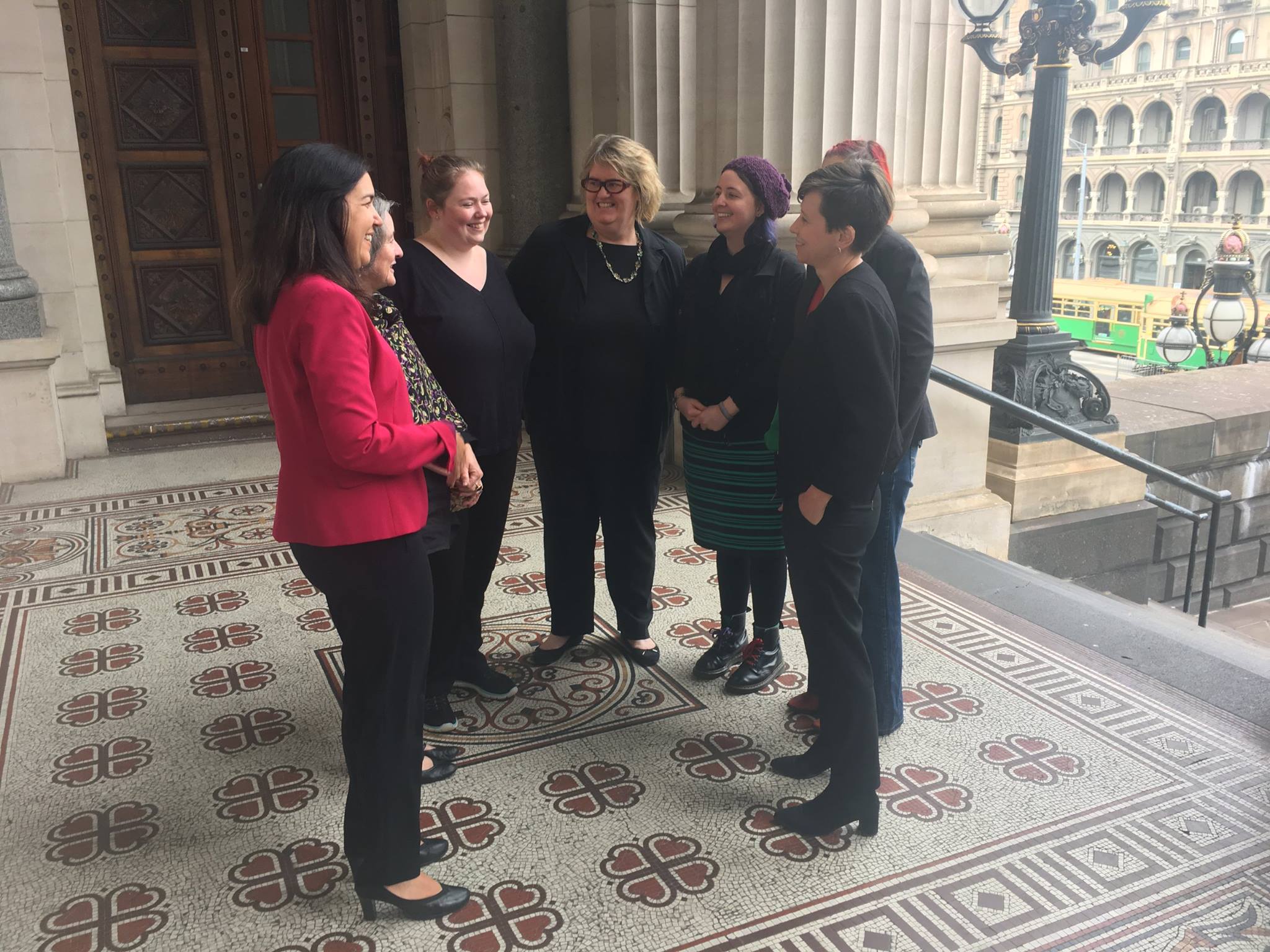This month the Senate Committee inquiring into gender segregation in the workplace and its impact on women's economic equality released its report. The ASU lodged a submission to the Inquiry and also appeared at hearings with members providing evidence. We are pleased that a number of the remedies we put forward have been picked up in the Committee’s recommendations.
 As one of the few unions to lodge an equal remuneration application in recent years and the only one to have won our case in decades, the ASU is in a unique position to talk on matters of pay equity and how the legislation makes achieving it very difficult on a number of fronts.
As one of the few unions to lodge an equal remuneration application in recent years and the only one to have won our case in decades, the ASU is in a unique position to talk on matters of pay equity and how the legislation makes achieving it very difficult on a number of fronts.
The evidence of our members Prue, Tahlia and Deb, all workplace representatives from the social and community services sector, was invaluable in providing Senators with an intimate view of the obstacles facing women trying to achieve economic equality.
“When our members speak directly with our law makers, politicians aren’t left in any doubt about the hurdles workers face, so we are incredibly thankful for Prue, Tahlia and Deb’s contribution at the hearing,” said ASU Assistant National Secretary Linda White, who also appeared before the Senate Committee.
PHOTO: ASU workplace representatives Prue, Tahlia and Deb along with ASU Assistant National Secretary Linda White meeting Senators McAllister, Moore and Singh.
Key areas where the Senate Committee report reflects the ASU submission include the following:
Paid Parental Leave
- An extension to the period of paid parental leave.
- New provisions for the payment of the Superannuation Guarantee during paid parental leave.
Career paths
- Recognition of career paths and qualifications for feminised industries, particularly the care industry.
Pay equity
- Reforms to the Fair Work Act to simplify applications and orders for equal remuneration.
- Conduct a review of alternative means of making equal remuneration orders, for example conciliation via the Pay Equity Panel, with a view to achieving a less adversarial process and more timely resolution of equal remuneration applications.
In addition the ASU was mentioned several times throughout the report, repeating various other recommendations we made. We hope this keeps those other potential remedies on the table for the Senate Committee’s future consideration.
The ASU recognises that even after our historic pay equity win for social and community services workers which won significant pay increases, the sector is still subject to job insecurity and relatively low wages and that, if not addressed, these issues may contribute to a further widening of the gender pay gap in the future.
Although the Senate Committee report recommendations are heartening, action is yet to come.
“Parliament must now walk the talk by putting these recommendations into action,” said Linda White, “and by looking at further measures, because we still have a long way to go to address women’s financial stability and economic equality.”

